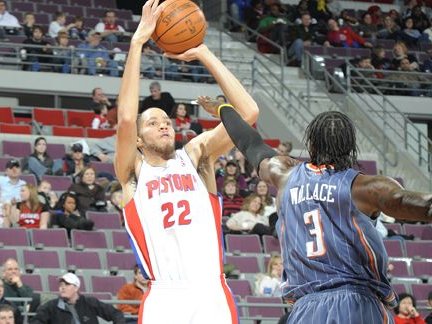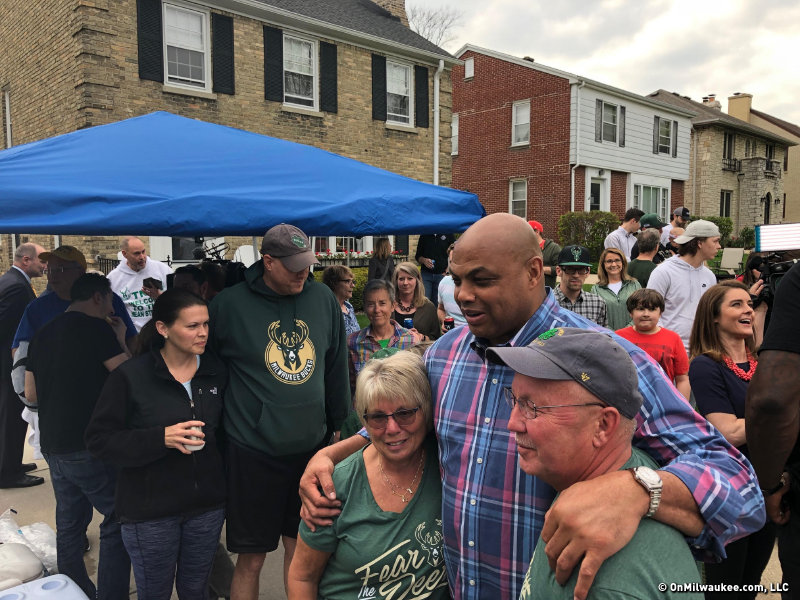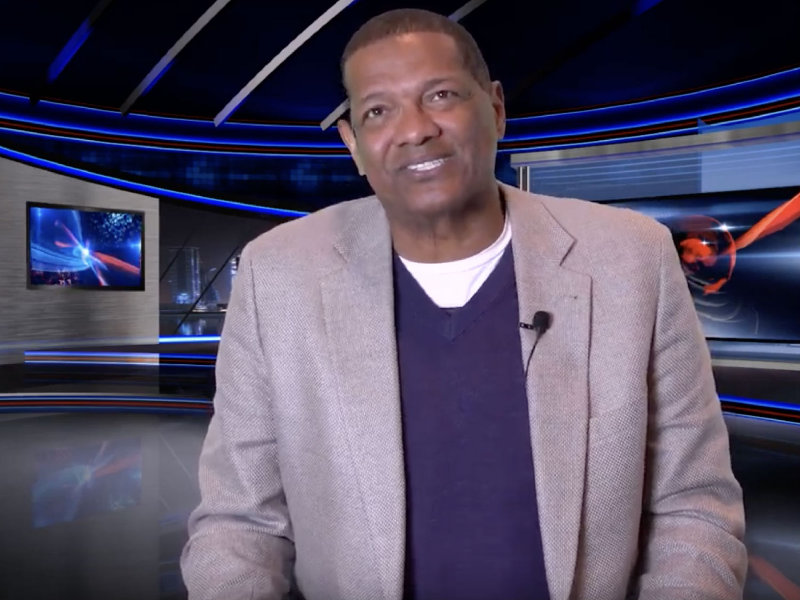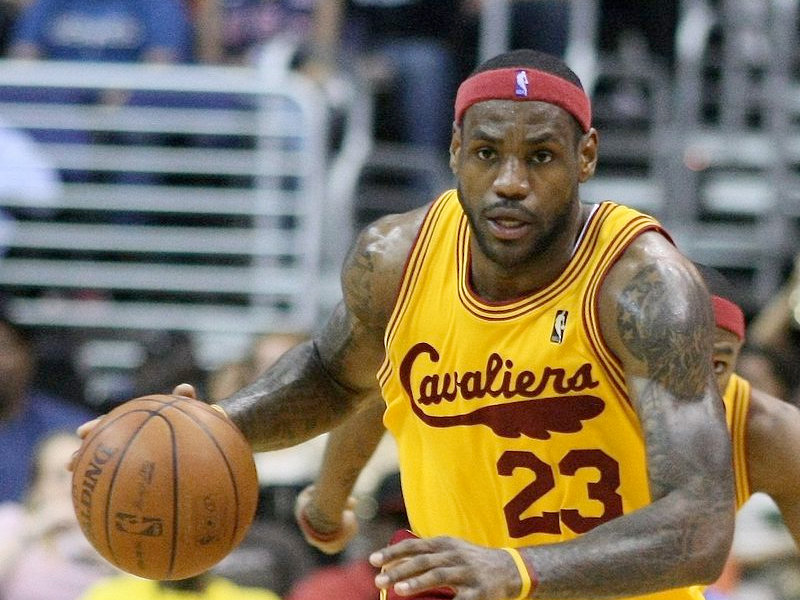As the NBA lurches towards a federal mediator, the league that thought it saved itself in 1999 when a lockout-shortened season was cut to 50 games, now finds itself with the only thing that is worse than fans that are angry.
Fans that don't care.
For much too long, the perception rooted in more reality than fiction is that the NBA office only concerns itself with a small number of teams.
The Lakers? Check. The (abysmal, but still in New York) Knicks? You betcha. The Heat? LeBron is there, right? The Bulls? Hey, MJ played there. Orlando? Well, they are getting an All Star Game there next year, aren't they? Dallas? Dirk? Rings?
That about covers it. The marquee teams get all of the love, and everyone else gets the shaft. And finally people have noticed that it's killing the league.
How basketball differs from baseball is dramatic. Perhaps it is because we have had Bud Selig, a small market owner-turned commissioner, understanding the plight of trying to win in media markets that are not quite as desirable as others. Baseball has made every effort to address the disparity between market sizes with a luxury tax that may not be perfect, but is a damn sight better than what it was 15 years ago.
In addition, next year the game's annual gathering – the All Star Game – will be held in tiny Kansas City. That is the equivalent of Minnesota or Salt Lake City in David Stern's world. But Selig understands that awarding such an important event to such a small city is important to the fans in Kansas City.
In fact, over the last decade, the midsummer classic has been held in places like Pittsburgh, Detroit, and yes, Milwaukee.
The only time Milwaukee has hosted the NBA's All Star game was 1977. Don't hold your breath for it to return ever again, either.
Instead, the NBA has rewarded the usual suspects with the game's showcase: Orlando (2012), Houston (2006 and 2013), Los Angeles (2004 and 2011), Phoenix (2009) and Dallas (2010). Even Las Vegas got the game once, in 2007.
As an aside, the game has never been held in Portland, Sacramento, Toronto, Memphis, or Oklahoma City. There are no plans to visit any of those cities, either. In baseball, only the Rays and Marlins have yet to host, but Miami is said to be on the short list for 2013 or 2014.
Moreover than all-star games, however, is the fact that most fans – or at least the ones outside of the NBA's preferred zone – have met the cancellation of the first two weeks of the season with a collective yawn. Perhaps it is because here in Wisconsin we have an embarrassment of riches with the Brewers in the NLCS, and the Packers and Badgers undefeated, but even nationally there hardly has been an outcry for the NBA to return.
Considering the number of empty seats at most NBA arenas over the last couple of years, the owners collective assertion that they are losing millions upon millions isn't all that hard to believe.
What is hard to believe is that they are trying to save themselves from....themselves.
No one put a gun to the heads of the ownership group in 1999 to accept what the players association was offering. We all thought that by implementing maximum salaries that overall payrolls could be managed.
But the problem wasn't the Kobe Bryant's or the Shaquille O'Neal's making $15-$20 million; it was the mid-level players raking in that much. In Milwaukee, we know all about Michael Redd making an absurd $18.3 million last season, but he wasn't the only player not coming close to earning his keep.
Among the others:
Rashard Lewis, Orlando Magic: $20.5 million
Kevin Garnett, Boston Celtics: $18.8 million
Andrei Kirilenko, Utah Jazz: $17.8 million
Gilbert Arenas, Washington Wizards: $17.7 million
Yao Ming, Houston Rockets: $17.6 million
Zach Randolph, Memphis Grizzlies: $17.4 million
Vince Carter, Orlando Magic: $17.3 million
Joe Johnson, Atlanta Hawks: $16.3 million
Kenyon Martin, Denver Nuggets: $16.0 million
Elton Brand, Philadelphia 76ers: $16.0 million
Predrag Stojakovic, New Orleans Hornets: $15.3 million
And the players are crying foul?
It's no wonder that the owners are losing money. Fans in cities that are considered undesirable by the NBA power brokers on 5th Avenue don't feel like their teams have a legitimate chance to win. It's not just Milwaukee. Fans in Minneapolis, Toronto, Cleveland (now that LeBron is gone), Charlotte, Oakland, Sacramento and others don't feel as if the league has them at a level playing field. It's one thing to not have confidence in the leadership of your hometown team; it's another to think the commissioner doesn't have your back, either.
Just ask the fans of the Seattle about that. But I digress.
The players and owners have hit a stalemate. The players believe wrongly that the fans are on their side. Conversely, if the owners don't respond to the loss of games by significantly reducing the cost of a family to attend a game, it won't matter what gains they have made at the negotiating table because their arenas won't be any more full than they have been over the last several years.
What the players don't want to understand is that fans have been priced out by the Vince Carter's of the league who are making $17.3 million for production that doesn't warrant a fraction of that. If fans don't want to go to the games, they won't follow their teams, and eventually the networks (where the real money comes from) will demand a market correction.
Look, everyone realizes that the seats at the Bradley Center aren't filled with fans wanting to see Herb Kohl own; they want to see Andrew Bogut and Brandon Jennings play. The players are the product, certainly. No one denies that.
But the system is broken. In every other walk of life when the owner of a business is losing his shirt, people are laid off. It's not a problem in Dallas, New York, or Los Angeles because those are the teams making money. You cannot have an 8-team league, however.
The only formula is both a reduction in player costs and ticket prices. The NBA will not survive one and not the other. Both sides had better come to this understanding or the league really is doomed.
Sure, the fans will lose out, but fans are resilient. They can find other ways to occupy their time. The owners will probably survive – some even will make out better financially by not playing this year than by suiting up using the old collective bargaining agreement.
But the players? They are the ones that will really be the losers. Their MTV lifestyles won't last without those fat paychecks coming. The problem is, at the end of the day, they will be among the only ones that care. Certainly, some fans are mad at the owners and players. That is to be expected. The teams and players they love are not entertaining them. But they – the hard core NBA fans – will be back as soon as this silliness is over.
But for everyone else, the lesson learned in baseball is one that is as applicable today to basketball. The opposite of love isn't hate.
It's apathy.
Doug Russell has been covering Milwaukee and Wisconsin sports for over 20 years on radio, television, magazines, and now at OnMilwaukee.com.
Over the course of his career, the Edward R. Murrow Award winner and Emmy nominee has covered the Packers in Super Bowls XXXI, XXXII and XLV, traveled to Pasadena with the Badgers for Rose Bowls, been to the Final Four with Marquette, and saw first-hand the entire Brewers playoff runs in 2008 and 2011. Doug has also covered The Masters, several PGA Championships, MLB All-Star Games, and Kentucky Derbys; the Davis Cup, the U.S. Open, and the Sugar Bowl, along with NCAA football and basketball conference championships, and for that matter just about anything else that involves a field (or court, or rink) of play.
Doug was a sports reporter and host at WTMJ-AM radio from 1996-2000, before taking his radio skills to national syndication at Sporting News Radio from 2000-2007. From 2007-2011, he hosted his own morning radio sports show back here in Milwaukee, before returning to the national scene at Yahoo! Sports Radio last July. Doug's written work has also been featured in The Sporting News, Milwaukee Magazine, Inside Wisconsin Sports, and Brewers GameDay.
Doug and his wife, Erika, split their time between their residences in Pewaukee and Houston, TX.







